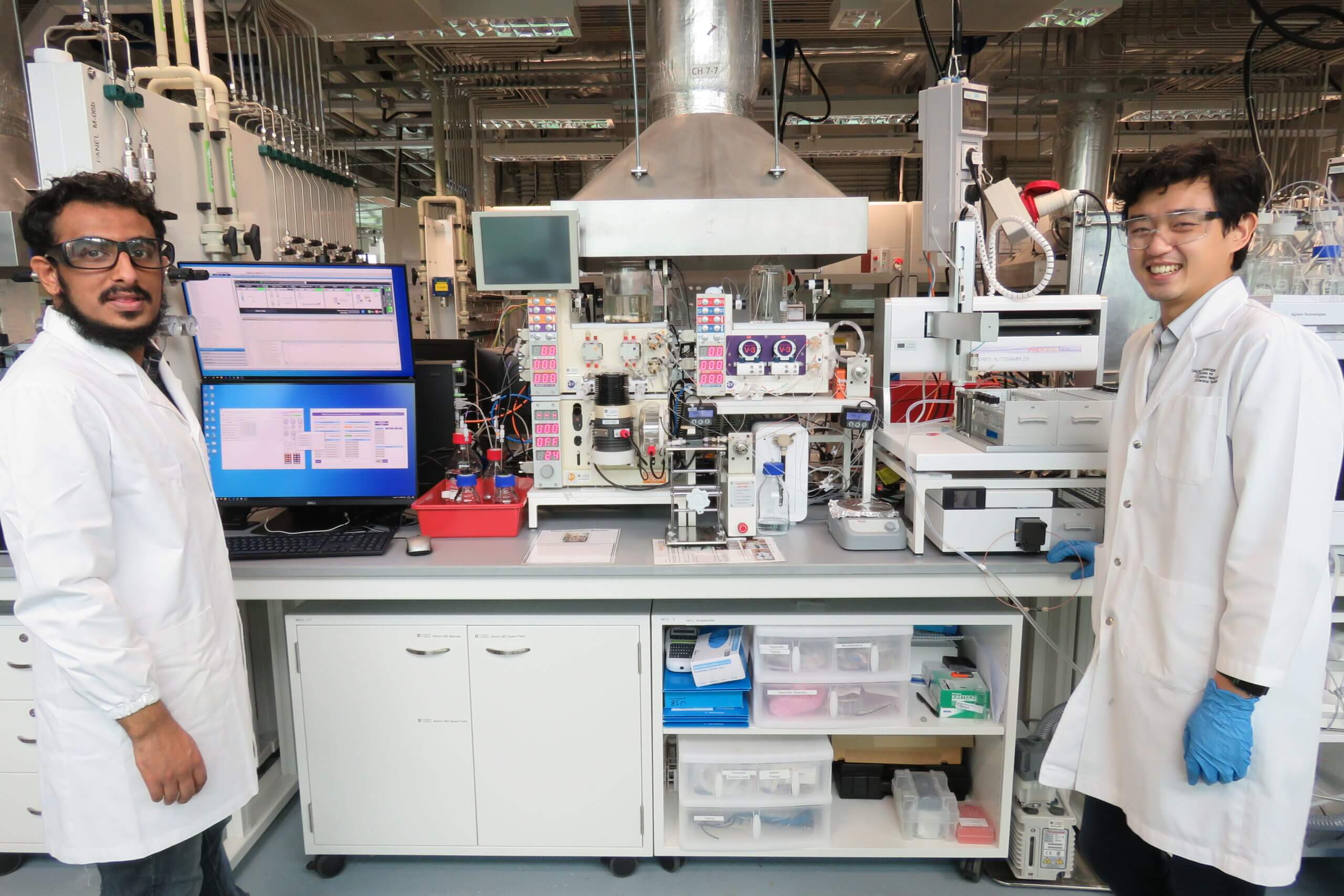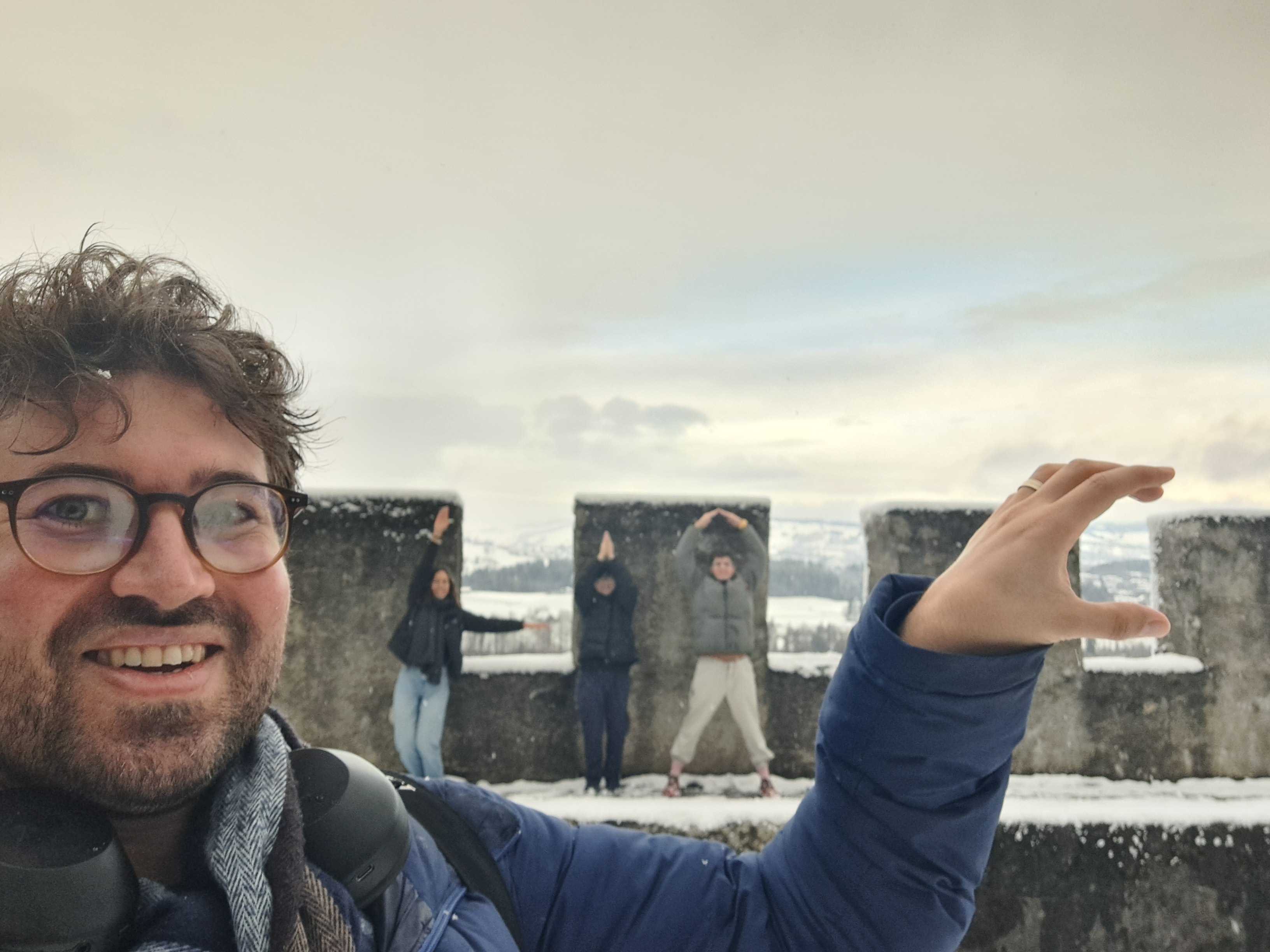In the CARES alumni series, we follow up with former graduates and researchers. Here, Mohammed Jeraal shares his experiences of living and working in Singapore as a CARES Research Fellow.
My research at CARES has focused on modernising the pharmaceutical drug development process through the synergistic combination of robotics, laboratory automation and machine learning. For a given active pharmaceutical ingredient (API), the complexity of the multi-step chemical synthesis, coupled with the enormous number of possible reagent and condition combinations are significant bottlenecks for rapid large-scale manufacturing.
Together, my colleague Simon Sung and I have focussed on developing a novel automated self-optimising system that can rapidly identify sustainable and high yielding multi-step chemistry and purification routes. This was achieved by combining programmable chemical handling equipment, in-line real-time chemical analysis and machine learning. Despite the success of existing active learning ML methods when applied to individual chemical reactions, examples of larger multi-step chemical systems have been limited and demonstrably poorer in our personal experience. We have therefore developed a new machine learning methodology for the multi-step optimisation of chemical processes for multiple simultaneous objectives.
The holistic end-to-end machine learning pipeline collectively utilises a range of supervised and unsupervised learning methods for a synergised approach to the representation and optimisation of chemical systems. The digital workflow has been seamlessly integrated into a robotic flow chemistry platform that we designed and created at both Cambridge CARES (Singapore) and the University of Cambridge (UK). Several demonstrations have been conducted using both platforms across a range of single and multi-step systems for the simultaneous optimisation a range of productivity, economic and environmental metrics. When combined with our decentralised unified user interface, it is hoped that this research provides an accessible, realistic showcase of the future of chemical process optimisation.
I would like to thank Cambridge CARES and the Pharma Innovation Programme Singapore (PIPS). Robotics, chemicals and computational resources are not cheap. The rapid completion of this project would not have been possible without their generous funding and support.
 Dr Mohammed Jeraal and Dr Simon Sung were both researchers on the “Development of Multi-Step Processes in Pharma” project.
Dr Mohammed Jeraal and Dr Simon Sung were both researchers on the “Development of Multi-Step Processes in Pharma” project.
Mohammed’s research was supported by A*STAR under its PIPS programme (Award A19B3a0013).


